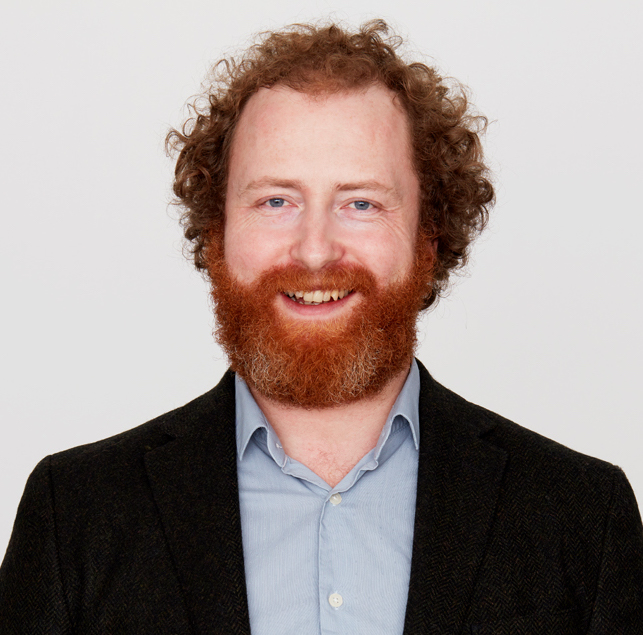
Meet SciComm expert Ben Libberton who works for VA (Public & Science), and is a science communicator in the ORION Open Science project.
Firstly, tell us a bit about VA (Public & Science)
Based in Stockholm, Sweden, Vetenskap & Allmänhet, VA (Public & Science) is a non-profit association whose purpose is to promote dialogue and openness between researchers and the public. VA has some 100 member organisations representing research organisations, public authorities, institutes and universities as well as companies and private associations. VA acts as a knowledge hub for public engagement, science communication and citizen science in Sweden. The organisation also has many years’ of experience of carrying out studies and surveys, with the aim of increasing knowledge about the relationships between science and society at large, such as its annual survey to measure the Swedish public’s general attitudes towards science and researchers. VA also supports Swedish organisations interested in learning about responsible research and innovation (RRI) as well as Open Science, and was coordinator of the Swedish hub in the EU RRI Tools project.
What comes to mind when you talk about Open Science?
Until a few years ago I was active in biomedical research. During that time, I published a paper and when I tried to access it online, the website asked me to pay a fee as my institution did not have access - I did not have access to my own work. While doing research, you understand that science can be more open but being asked to pay a fee to see your own work really brings the problem home. Now I’m in the situation that I’ve left academia but I still maintain a strong interest in my former academic discipline and I’m also interested in new research related to science communication. Now, when I try and access any publication, I’m faced with hurdle after hurdle because I’ve lost my academic credentials. To me, this is a daily occurrence that motivates me to help promote more open science.
However, since stepping into the world of science communication, I’ve become aware of the many ways in which science and data can be open. Now I think of inaccessible jargon creating invisible walls around information that need to be dismantled. I’m also really interested in how big data sets are shared and used.
What is the motivation behind VA (Public & Science) getting involved in the ORION Open Science project?
VA is a hub for public engagement, science communication and citizen science. Open Science is a hugely valuable tool for us to be able to function effectively. ORION is an ambitious project that is delivering some new and exciting methods for improving awareness about Open Science and engaging a variety of stakeholders at many different levels of scientific discourse. We feel our obligation to contribute our expertise to such a valuable project and are excited to learn about new ways to incorporate Open Science into our every day work.
What do you hope to achieve through the project?
I really like to measure things so through ORION, it would be great if we can get some quantitative data on the state of Open Science now, as well as if we have been able to make a difference during the course of the project. I am also very passionate about sharing knowledge and there are a number of elements of the ORION project related to education. I hope to be able to spread as much knowledge and inspiration about Open Science as possible, but I am also keen to learn a lot and to become inspired to do more.
What do you see is the greatest challenge for ORION?
There are a lot of forces maintaining the status quo when it comes to Open Science. From large publishing houses that are unwilling or unable to make the necessary changes to old researcher habits that are hard to erase. Ultimately, overcoming these challenges will be difficult and will require a deep understanding of the problem. When it comes to sharing information, I think ORION faces the same challenges as every online publisher, namely, it is hard to get attention. However, I’ve never worked in a team that is more equipped to handle these challenges.
What do you personally find most interesting/exciting about the ORION project?
I learn so much by interacting with the ORION team. I think that hearing about people’s experiences and how they overcame challenges has been extremely enriching for me personally. I’m also very passionate about the goals of the ORION project and every time we complete a milestone in the project, it feels like we are making a difference. ORION is one of those rare projects where I feel the lessons and habits will continue on long after the project officially ends.
In less than one year, when the project is coming to an end, what is your dream scenario for ORION?
It is incredible to see how much has already been achieved in ORION. In my view, it is already a resounding success. However, what I would love to see is ideas and projects that started in ORION, carry on into other arenas and gradually embed themselves into the fabric of science communication and research. I’d love to be constantly attending public dialogues and applying for co-creation funding. I’d love to see new apps popping up on my phone that are really engaging and break down the barriers that can prevent people gaining access to the wonderful world of science. I don’t think there is one element of the ORION project that wouldn’t want to see continued or expanded in one form or another.